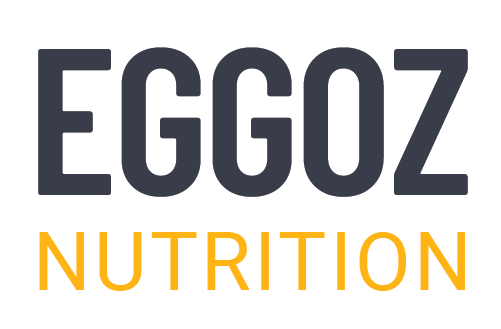Meal planning is a strategic approach to organising and preparing meals to meet specific dietary goals and nutritional needs.
Globally, 3 billion people cannot afford a nutritious diet even if they spend most of their money on food.
For individuals aiming to build muscle, effective meal planning becomes crucial in optimising their diet to support their fitness goals.
Muscle growth demands a balanced diet of calories, protein, carbs, and fat. Meal planning is great for muscle building due to its rich nutrient-dense components.
Why Nutrition is Important for Muscle Gain
To build muscle, you need to consume more calories than you burn, generally about 10-20% more than your maintenance calories. Protein intake is critical for muscle repair and growth, while carbohydrates provide energy and fats ensure overall balance. For muscle gain, it's recommended to consume about 1.6-2.2 grams of protein per kilogram of body weight, 0.5-1.5 grams of fat per kilogram, and the remainder of calories from carbohydrates.
7-Day Meal Plan
Below is a 7-day diet plan based on a 150-pound (68 kg) person requiring approximately 2,200 calories per day. Adjust portion sizes according to your specific calorie requirements.
|
Day |
Breakfast |
Snack 1 |
Lunch |
Snack |
Dinner |
Snack 3 |
Total Nutrients |
|
Day 1 |
Paneer Bhurji (100g), 2 whole wheat parathas (80g each), Calories: 400 |
Protein: 18g |
Carbs: 45g |
Fat: 20g |
Roasted almonds (30g), 1 banana, Calories: 250 |
Protein: 6g |
Carbs: 30g |
|
Day 2 |
Masala omelette (3 eggs), 2 slices whole wheat bread, Calories: 450 |
Protein: 22g |
Carbs: 38g |
Fat: 24g |
Roasted peanuts (30g), 1 apple, Calories: 300 |
Protein: 8g |
Carbs: 35g |
|
Day 3 |
Upma (1 cup), peanuts (1 tbsp), Calories: 400 |
Protein: 12g |
Carbs: 60g |
Fat: 10g |
Protein shake (1 scoop whey protein + 1 cup almond milk), Calories: 250 |
Protein: 20g |
Carbs: 15g |
|
Day 4 |
Besan chilla (2 pieces), mint chutney (2 tbsp), Calories: 400 |
Protein: 15g |
Carbs: 50g |
Fat: 12g |
Almonds (30g), 1 orange, Calories: 250 |
Protein: 6g |
Carbs: 35g |
|
Day 5 |
Dosa (2 pieces), coconut chutney (2 tbsp), sambhar (1 cup), Calories: 450 |
Protein: 10g |
Carbs: 70g |
Fat: 15g |
Boiled sweet potato (1 small), roasted peanuts (30g), Calories: 250 |
Protein: 8g |
Carbs: 40g |
|
Day 6 |
Poha (1 cup), peanuts (1 tbsp), Calories: 400 |
Protein: 12g |
Carbs: 55g |
Fat: 12g |
Protein shake (1 scoop whey protein + 1 banana), Calories: 250 |
Protein: 20g |
Carbs: 30g |
|
Day 7 |
Whole wheat paratha (1 piece), curd (1 cup), mixed vegetables (1 cup), Calories: 450 |
Protein: 12g |
Carbs: 55g |
Fat: 18g |
Roasted chickpeas (30g), 1 orange, Calories: 230 |
Protein: 8g |
Carbs: 45g |
Benefits of eating healthy meal
A meal plan for weight loss reduces calories and meets nutritional demands. This method emphasises nutrient-dense foods, which are high in vitamins, minerals, and other nutrients yet low in calories. Here are five positive impacts of eating the right meals:
1. Enhanced Muscle Growth and Recovery
Eating a balanced diet rich in protein, carbohydrates, and healthy fats supports muscle growth and speeds up recovery after workouts. Adequate protein intake is crucial for muscle repair, while carbs provide the energy needed for intense physical activity. This is especially important for those looking to gain muscle mass or improve their strength.
2. Improved Energy Levels
A nutritious meal plan provides a steady source of energy throughout the day, preventing fatigue. Complex carbohydrates, such as whole grains, fruits, and vegetables, offer sustained energy release, while fats and proteins help maintain focus and stamina, supporting both physical and mental activities.
3. Better Immune Function
A well-rounded diet that includes vitamins and minerals strengthens the immune system, helping the body ward off infections. Nutrients like vitamin C, vitamin D, zinc, and antioxidants, found in fruits, vegetables, nuts, and seeds, play a vital role in maintaining immunity and overall health.
4. Weight Management
Eating the right balance of nutrients can help with maintaining or achieving a healthy weight. Consuming nutrient-dense, whole foods instead of processed or high calorie food ensures you stay fuller for longer, reducing the likelihood of overeating or snacking on unhealthy foods. Proper meal planning can also regulate calorie intake in a sustainable way.
5. Improved Mental Health
Good nutrition has a significant impact on mental well-being. Diets rich in omega-3 fatty acids, complex carbohydrates, and micronutrients can help reduce anxiety, depression, and stress. Proper nutrition helps maintain stable blood sugar levels, which is essential for mood regulation and mental clarity
Conclusion
This 7-day meal plan for muscle gain provides a balanced intake of calories, protein, fats, and carbohydrates. For an added boost in quality nutrition, consider incorporating Eggoz eggs into your diet. Their farm fresh eggs are a high-quality source of protein, making them an excellent choice for muscle building and recovery. Adjust the portion sizes based on your individual caloric needs and track your nutrient intake to ensure you're meeting your muscle-building goals effectively.


